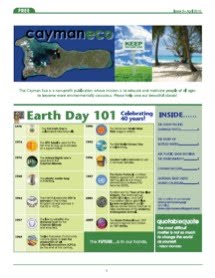cayCompass
Patrick Brendel | patrick.brendel@cfp.ky
A group of citizens organised in opposition to the proposed Bodden Town district landfill want to know why their area was picked for the new solid waste facility. Specifically, the Dart Group-owned site is between Bodden Town and Breakers, near two quarries and the Midland Acres subdivision.
“How was Midland Acres chosen as the site for a new dump, and where is the assessment of the consequences of the dump on the people of our district?” said Vincent Frederick, spokesman for the Coalition to Keep Bodden Town Dump Free.
The coalition also questions what happened to the waste-to-energy proposal to clean up the George Town Landfill while creating electricity. Bodden Town MLA Mark Scotland said previous strategies to address the landfill were simply not affordable.
“The dump is the most serious environmental issue facing our country today. Solutions have eluded successive governments primarily because of the cost,” he said.








